
Virtual is an option this fall … with a catch
Wayne County students who want or who need to participate in virtual learning this fall will be able to do so — but course offerings will be limited and they will not be eligible to participate in extra-curricular in-school events like sports or prom.
Acceptance into virtual learning will not be automatic either, assistant superintendent Dr. Marcia Manning told Board of Education members this week.
Students will have to apply, to meet specific criteria and to demonstrate that they successfully participated in virtual learning this past school year, Manning said.
That application, which must be returned to the district by June 30, will be reviewed by the school principal, who will measure various criteria to see if the student will be accepted into the virtual program.
Last year, the governor mandated a virtual option, Manning said. This year, while the district is still planning to offer services as it always does for students who are medically fragile or who have special circumstances that prevent in-school attendance, a family will have to demonstrate need and a commitment to full participation to be accepted into the virtual program for 2021-22.
The idea is to get as many students as possible back to in-person classes.
“Like many school districts across the nation and certainly across North Carolina, we believe in-person instruction is best for students,” she said.
To be accepted, students will have to demonstrate success in a virtual learning environment, have the ability to participate in synchronous learning, which will make up half the daily instruction time, and commit to a full semester of virtual learning.
Students in grades 3-8 also must have a learning coach — a person in the home for technical and academic support.
Manning said the district will guarantee that all required courses for graduation will be available, but added not all electives will be offered.
“A lot of high school electives require face-to-face instruction,” she said.
The same is true for some middle school options as well.
Manning added that many teachers tried to provide the electives for students under the special circumstances necessitated by the pandemic, but that the extra work made it very difficult for them to manage the load.
“We were asking teachers to do two jobs at the same time,” she said.
Manning said the district is making sure that teachers who teach virtual only teach virtual and that face-to-face teachers only teach face-to-face.
She acknowledged that some teachers might do a virtual-face-to-face mix, but that they would do so voluntarily.
She added that some students who opt for the virtual academy might have a teacher who is based at another school, but that the student will remain assigned to their home school.
Manning said that virtual option students will have times when they have to come to school — for assessments and testing, which must be done face-to-face.
Students who are requesting virtual instruction will not be allowed to participate in any extra-curricular activities, Manning said, because that is the whole reason they are applying for the special instruction in the first place.
“If you have special circumstances where you need to learn from home, it doesn’t make sense that you also would want to or would need to participate in athletics or clubs or attend prom or at-school events,” Manning said.
Exceptions will be made for seniors who wish to attend graduation ceremonies, she said.
The virtual option is currently only available for students in grades 3-12, although the district is considering removing third grade as an option since it is such a critical year for assessments and instruction that sets the tone for future academic success, Manning said.
“We strongly believe that students in pre-K (through second grade) need to attend school face-to-face,” she said.
She emphasized that third grade is critical as well and will be considered as an addition moving forward.
Manning said that teachers and administrators worked very hard to make this year’s virtual instruction a success, but added that the fact that the district is preparing for an intensive summer school instruction program is a sign that it was not the best option for many Wayne County students, and that there was a learning loss.
“We (have heard) over and over again from families that virtual learning was a challenge,” she said.
The obstacles included everything from technical issues to emotional strain.
In response to a question from board member Dr. Joe Democko, Manning said that there is an option for students who want to enroll in a hybrid experience, which would be administered through the North Carolina Virtual Public School.
Students who opt for that instruction will be under supervision and participate in a state-accepted substitute for in-person classes, and would therefore, technically, be attending school.
They would be allowed to participate in extra-curricular activities, Manning said.
Manning said she knows the turn-around time for application for the program is short, but added that the potential interest is likely limited.
“People who want it already know they want it,” she said.
Principals will review the applications, which will require families to state a reason for the request. Those administrators will determine eligibility.
“(What is important for parents to know) is that it is an application process this year,” Manning said. “It is not a guarantee.”
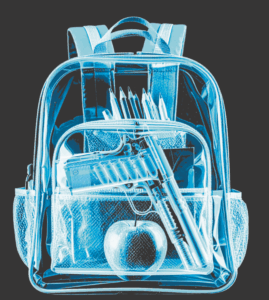
A loaded discussion

Fighting for their lives

Goldsboro loses a giant
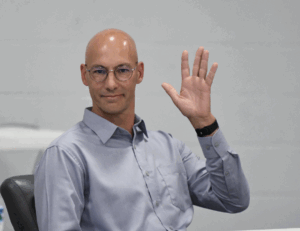
“I’m a flippin’ hurricane!”
Public Notices — Feb. 8, 2026
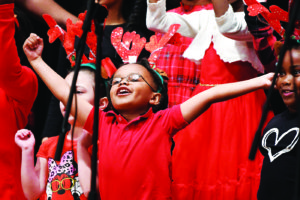
Belting it out
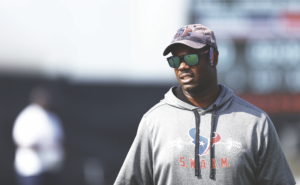
Legendary
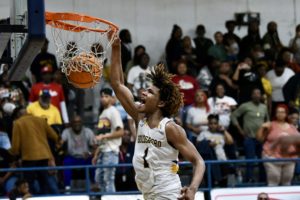
Final Four!


